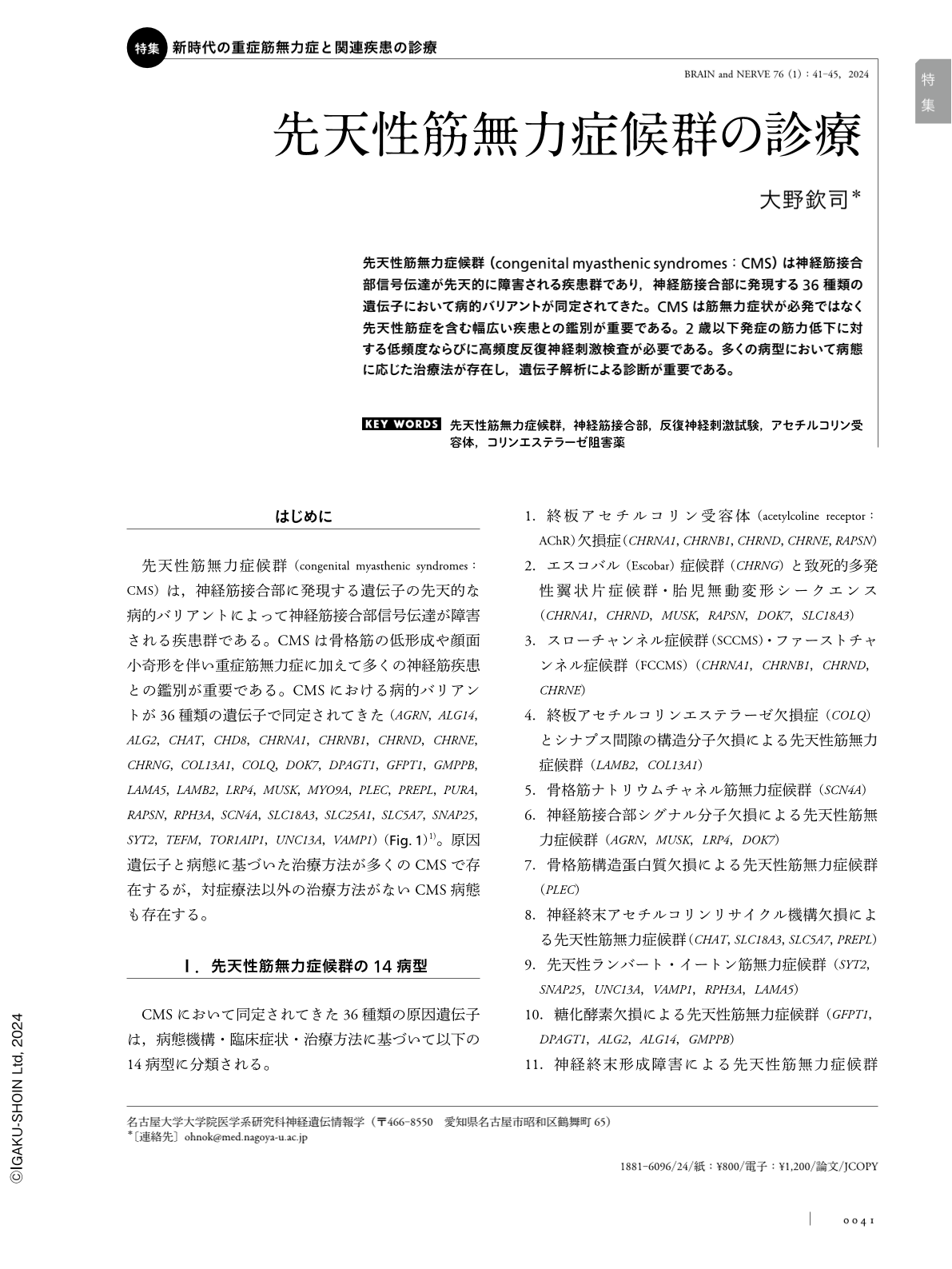Japanese
English
- 有料閲覧
- Abstract 文献概要
- 1ページ目 Look Inside
- 参考文献 Reference
先天性筋無力症候群(congenital myasthenic syndromes:CMS)は神経筋接合部信号伝達が先天的に障害される疾患群であり,神経筋接合部に発現する36種類の遺伝子において病的バリアントが同定されてきた。CMSは筋無力症状が必発ではなく先天性筋症を含む幅広い疾患との鑑別が重要である。2歳以下発症の筋力低下に対する低頻度ならびに高頻度反復神経刺激検査が必要である。多くの病型において病態に応じた治療法が存在し,遺伝子解析による診断が重要である。
Abstract
Congenital myasthenic syndromes (CMS) are characterized by congenital defects in the neuromuscular signal transmission and are caused by pathogenic variants in 36 genes. Recently identified forms of CMS include TOR1AIP1-CMS, CHD8-CMS, PURA-CMS, and TEFM-CMS. Most forms of CMS are caused by autosomal recessive variants, whereas four forms of CMS are caused by autosomal dominant variants, in which adult-onset cases are not rare. As myasthenic features are not always observed and muscle hypotrophy is sometimes observed, CMS should be considered in differential diagnosis of congenital myopathies and other neuromuscular diseases. Low- and high-frequency repetitive nerve stimulation is essential to diagnose CMS for patients who develop muscle weakness at less than 2 years of age. Tubular aggregates are observed in muscle biopsy in four forms of CMS, and serum CK levels are elevated in some forms of CMS. As rational therapies are available for most forms of CMS, identification of causative gene variants by genetic analysis is required.

Copyright © 2024, Igaku-Shoin Ltd. All rights reserved.


